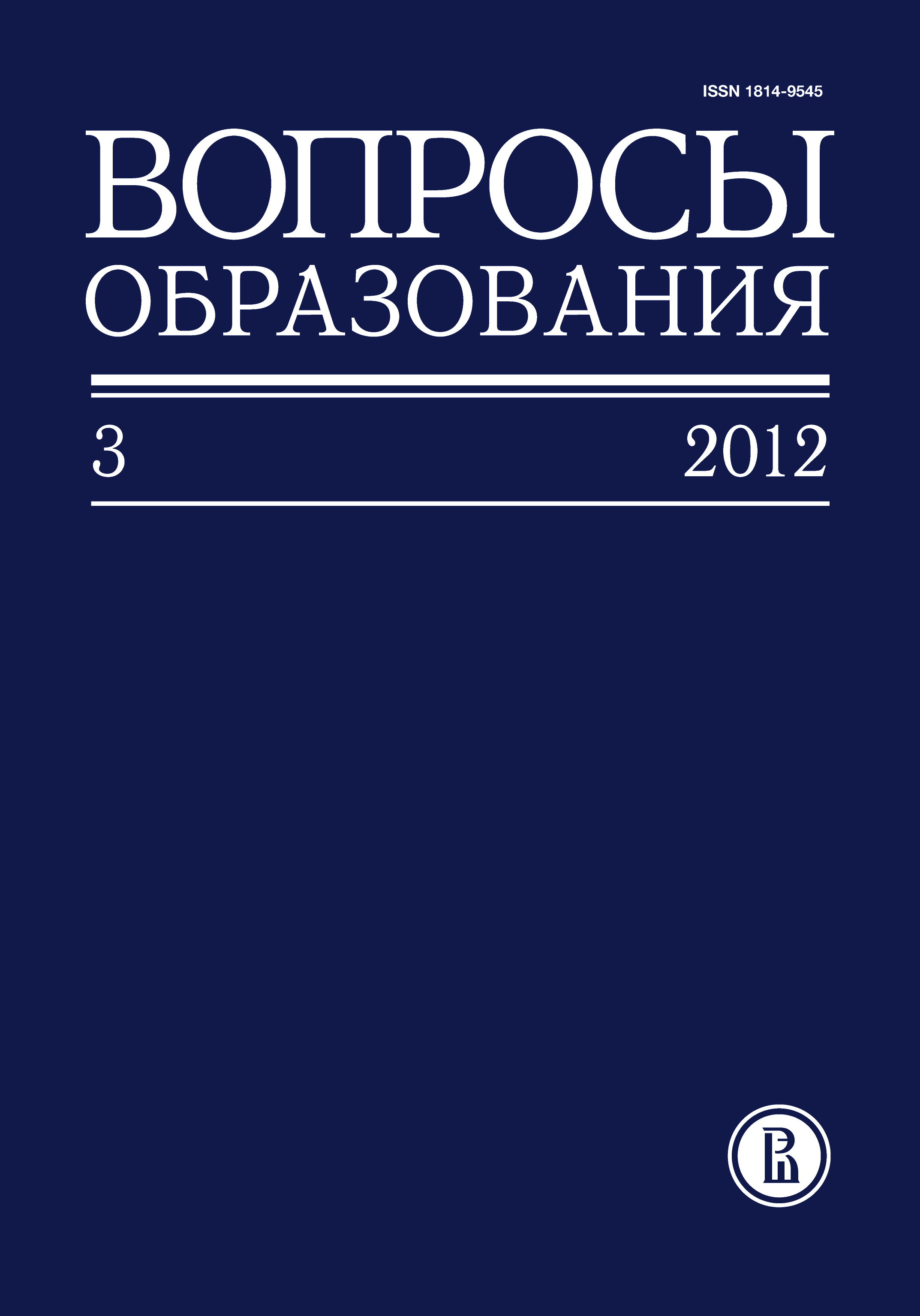Характеристики учителей и достижения школьников. Применение метода firstdifference к данным TIMSS-2007
Аннотация
Тюменева Юлия Алексеевна — кандидат психологических наук, старший научный сотрудник Центра мониторинга качества образования НИУ ВШЭ. Эл. адрес: jtiumeneva@hse.ru
Хавенсон Татьяна Евгеньевна — младший научный сотрудник Международной лаборатории анализа образовательной политики НИУ ВШЭ. Эл. адрес: tkhavenson@hse.ru
Международные исследования по оценке качества математического и естественнонаучного образования (Trends in International Mathematics and Science Study, TIMSS) обладают тем преимуществом, что кроме прямой когнитивной оценки учащихся собирают информацию об учителях этих школьников: их образовании, опыте работы, практике ведения уроков. Чтобы оценить связь учительских характеристик с достижениями школьников и преодолеть ограничения корреляционного дизайна TIMSS, был применен метод first difference (метод первой разницы). Кроме того, эффекты учительских характеристик были оценены методом обычных регрессий. Обнаруженные связи различались от одной предметной области к другой, и результаты использования метода первой разницы отличались от результатов обычного корреляционного анализа. Для математики метод первой разницы обнаружил отрицательную связь репродуктивных заданий и групповой работы на уроках с достижениями, а задания на понимание и развитие метапредметных навыков показали положительную связь. Для предметов естественнонаучного цикла репродуктивные задания имели, наоборот, положительную связь, тогда как задания на понимание и развитие метапредметных навыков либо не имели эффектов, либо они были негативные. Для естественнонаучных предметов, в отличие от математики, значимое влияние на достижения также оказывал опыт учителя.
Применение нового методологического подхода позволило не только ответить на вопрос о связи учительских характеристик и достижений учеников, но и выявить те характеристики, которые свойственны некоторым группам учителей, например тем, кто работает в высокостатусных школах или с более подготовленными учениками. Эта информация может быть использована и при выработке образовательной политики, и для планирования будущих исследований, особенного экспериментального плана.








